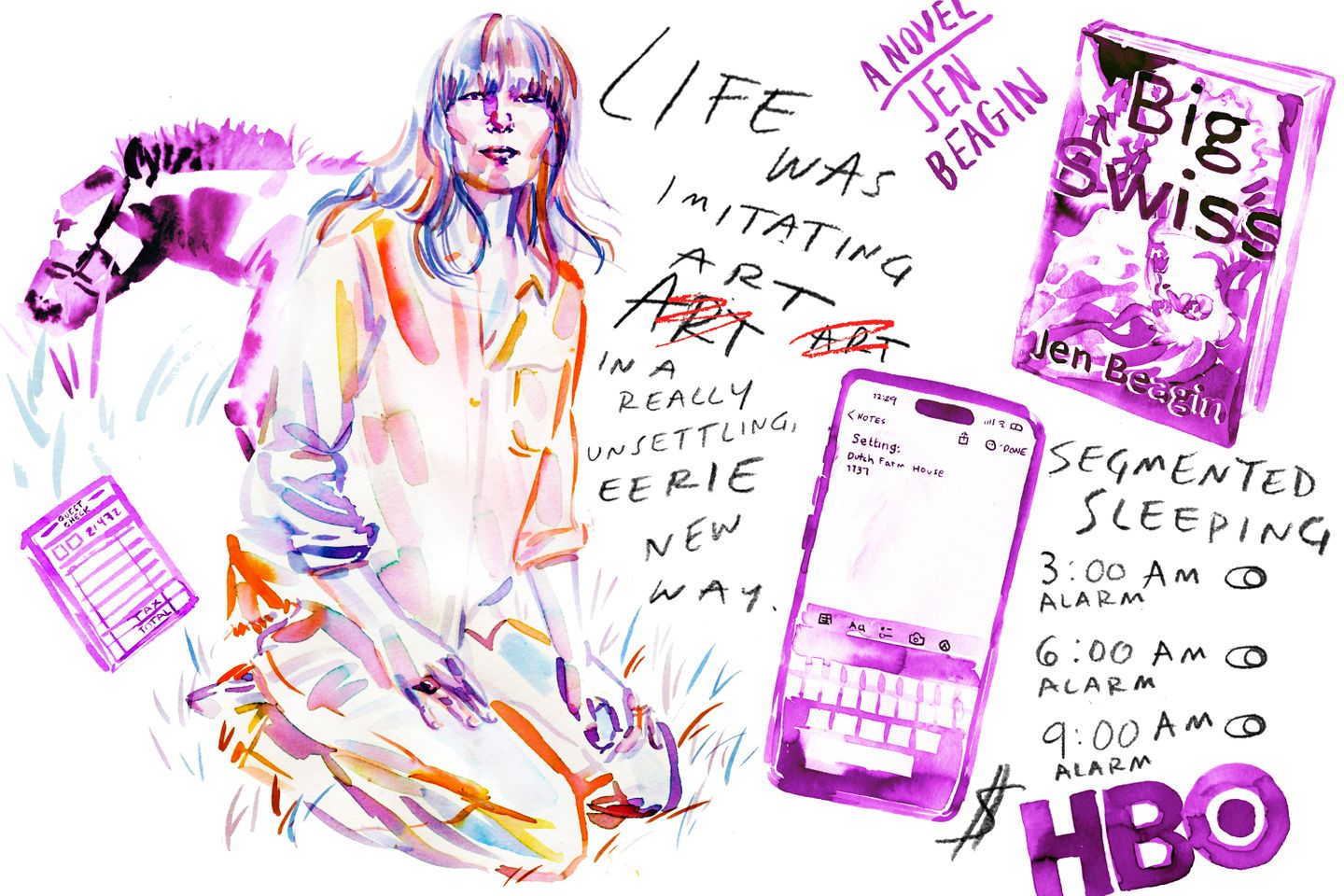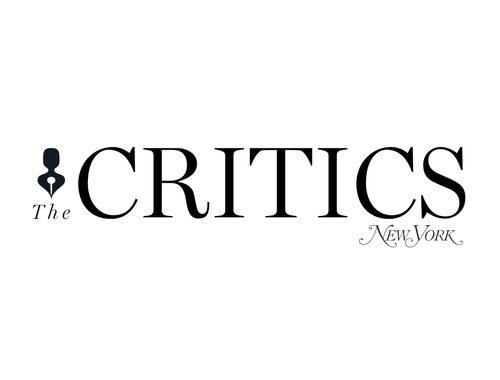 | ![]() | | Illustration: by Samantha Hahn | | |  When she got the call that would change her life completely, Jen Beagin was in the middle of using a hair dryer to warm up the freezing sheets of her bed in a beautiful but unheated 300-year-old Dutch farmhouse in Hudson, New York. “I was 47, and I’d been waitressing full-time for seven years, writing in the early mornings, and I was burnt out.” At first, she thought the Whiting Foundation was a scam. “I kept saying, ‘Writing foundation?’ We went back and forth like that for a while.” Beagin eventually accepted that she was among the 2017 recipients of a $50,000 grant for emerging writers. The foundation was honoring her first novel, Pretend I’m Dead, an idiosyncratic book narrated by a house cleaner who gets too involved with her clients. (When she wasn’t waitressing, cleaning houses was among the jobs Beagin held down over the years.) She did try to dissuade the caller. “I said, ‘That book’s really short,’ and they were like, ‘No, you deserve this.’ They kept saying that, ‘You deserve this.’” |
| The Whiting money plus the advance that Simon & Schuster paid for Pretend I’m Dead enabled Beagin to finally quit her job and write full-time. Vacuum in the Dark, a sequel to Pretend I’m Dead, was published in 2019. February 7 brings readers her most exciting book yet: the idiosyncratic love story Big Swiss. Jodie Comer is adapting the book into a TV series for HBO that she’ll star in as the titular character, after winning a 14-way bidding war for film rights. |
| Beagin was in a different — heated — house in Hudson when we talked, one she owns. She reluctantly moved out of Dutch house when her friend sold it in 2019, then bought this house after selling her dad’s house when he died in 2021. We had to shout a little bit over the noise of someone tearing down a wall in her basement, so Jen started the conversation by apologizing for the noise to me and also to the person who would eventually transcribe our interview. Jen has worked as a transcriber herself, and Big Swiss’s plot revolves around transcription: Greta, 45 and drifting through life, works as a transcriber for Hudson’s leading sex therapist, a man who unapologetically goes by the name “Om.” (When Greta first meets Om, he’s wearing a felt fedora, along with “black eyeliner, a tasteful white linen tunic, and tight denim shorts.”) She quickly learns the secrets of just about everyone in town, including an Om patient she privately nicknames Big Swiss because she’s tall and, well, Swiss. |
| You can do a lot of character development very quickly if you include therapy transcripts in your novel, it turns out. Big Swiss is an indelible character; she’s beautiful yet deliberately unappealing, cold, blunt, and addicted to condiments. She is a gynecologist who has survived a horrific assault, yet has nothing but contempt for what she calls “the trauma people.” What brings her to Om’s office, though, is that she has never in her 28 years experienced an orgasm. It’s easy to see why so many famous actresses were interested in playing this role: Big Swiss has a lot of nuance; she’s funny and she’s beautiful, and there’s something really fun about saying “Big Swiss.” |
| Beagin set out with the explicit goal of writing an upbeat book about trauma. Greta’s mother committed suicide when she was 12, and in general her life since then has been a bit of a shitshow. Big Swiss, perhaps because of what she won’t call her trauma, has a shocking capacity for cruelty. When Greta and Big Swiss finally meet at the dog park, their love affair is inevitable, but also super weird. Greta struggles to keep everything she’s learned from transcribing Big Swiss’s therapy sessions from slipping out in casual conversation. |
| Watching Greta and Big Swiss navigate each other’s minds and bodies is one of the novel’s great pleasures. Beagin’s sex scenes are like no one else’s. In bed with Big Swiss, Greta thinks about how “anything and everything seemed possible. She could pilot a helicopter if she wanted, or act in a play. She could make soap, sweaters, sausage. Maybe dance?” But Greta’s subterfuge must come out eventually, and the book’s climactic scenes are, as you’d expect, wrenching and hilarious. |
| Beagin wrote the book, as she writes all her books, in bed, on the Notes app of her phone, typing with one finger. Her writing schedule is idiosyncratic: She does what she calls “segmented sleeping,” meaning she goes to bed around 9:30 or ten, wakes up at three, writes for three hours, then sleeps for another three. “I sleep really deeply from six to nine. And then I wake up fresh and write a couple more hours. And then I edit for another couple hours, and then that’s it. So I’m done by noon at the latest.” |
| During the two years and change she spent working on Big Swiss, Beagin had to contend with trauma of her own. First, of course, was the pandemic. Then she discovered that she had a huge fibroid and needed a hysterectomy. A residency in Amsterdam, which should have been a dream come true, turned slightly horrific when the location changed at the last minute to the childhood home of Anne Frank. “So I was trying to write this hopeful ending to the novel, but there I was in Anne Frank’s childhood home, and there’s people sobbing on the doorstep all the time.” |
| Beagin’s estranged father died by suicide on the day that she handed in her manuscript, tragically echoing fictional Greta’s mother’s death. Beagin found this coincidence creepy, to say the least. “I mean, I’d written about my dad in my previous books, but life was imitating art in a really unsettling, eerie new way.” She was forced to reconsider what she’d written, whether she’d captured grief accurately. “What I had and hadn’t gotten right about it, and the ways it hadn’t prepared me for the real thing.” |
| Beagin hadn’t even begun to process her loss when her luck changed dramatically, again. “My dad hadn’t yet been cremated, and then my agent in Hollywood (Ron Bernstein) calls and says, ‘Your manuscript got leaked and it’s circulating like crazy.’” The bidding war that ensued included a number of big-name actresses who saw themselves in the meaty roles of either Greta or Big Swiss: Julia Louis-Dreyfus, Elisabeth Moss, Laura Dern, and Olivia Colman. Beagin was delighted when Comer won and brought HBO onboard. |
| For the book itself, Beagin’s advance was $100,000, a respectable number for a mid-list literary novel. If — because these days, nothing’s certain until a show starts airing — the show makes it to series, Beagin will likely earn through the advance and get royalties. But the real money, of course, is the television deal itself. Beagin wouldn’t tell me an exact dollar amount, but allowed that it was life-changing. “It’ll allow me to just do what I’m doing, going forward.” |
| Signs of the show’s progress seem positive. HBO has been scouting locations around Hudson, including the unheated farmhouse, with Beagin — who will have an executive-producer credit — showing them around. Thinking about casting, Beagin likes Aubrey Plaza for Greta. |
| Two extremely charismatic miniature donkeys, Ellington and Pantaloon, are introduced toward the end of the book. In Beagin’s author photo, she poses in front of what appears to be … a miniature donkey. As you may have noticed, she likes to blur the line between fiction and reality, though the book’s plot is, she hastens to say, extremely made-up. Ellington and Pantaloon, however? Ellington and Pantaloon, however? Exactly as she had written them: “Beautiful, calming, and friendly as lapdogs.” Unfortunately, in real life, Ellington met a premature end thanks to an encounter with a truck. “It was good while it lasted, except for Ellington’s death, which was horrible,” Beagin says of her time as a miniature-donkey owner. Pantaloon had to be returned to the donkey farm so she wouldn’t die of loneliness; mini-donkeys can only live in pairs. But in the pages of Big Swiss, Ellington and Pantaloon live on together eternally, bucking, farting, and eating gingersnaps right out of Greta’s hand. |
| Enjoying Making It? Forward it to a friend. Or sign up for The Critics, a newsletter surveying the week in culture. You may also like Brooding, a newsletter delivering deep thoughts on modern family life. |
| | |





